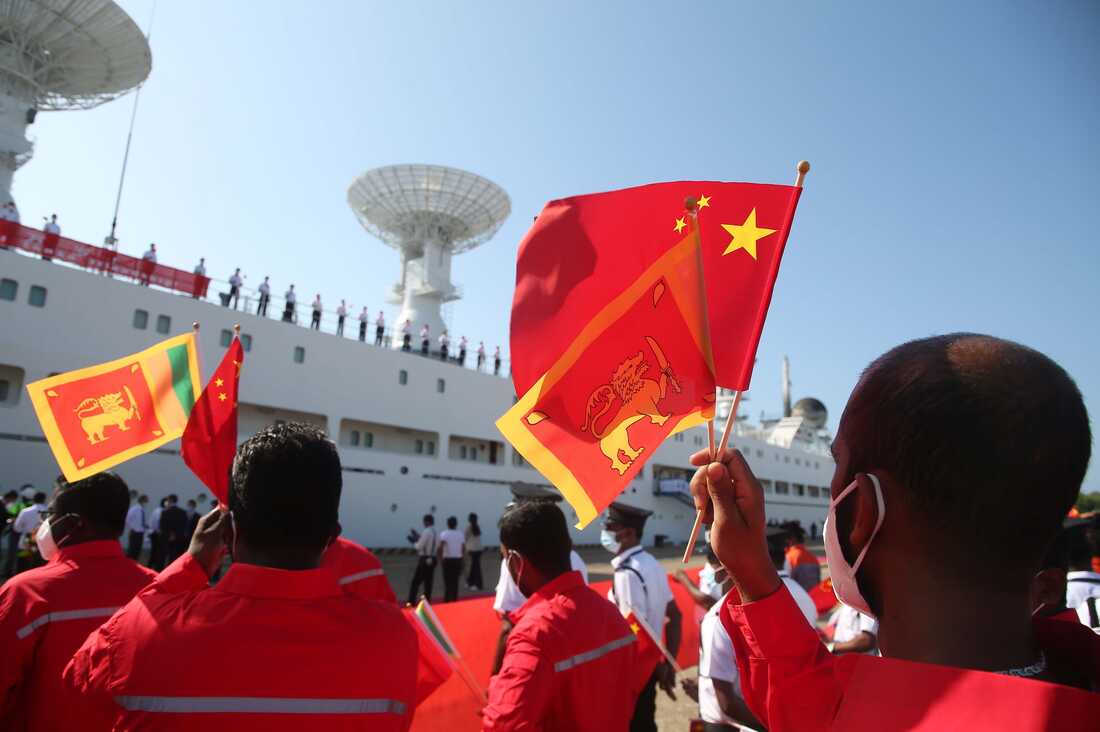Sri Lanka has reportedly decided not to allow any Chinese research vessel to dock at its port or operate within its Exclusive Economic Zone (EEZ) for one year. Colombo has reportedly shared the information about this decision with New Delhi recently. So, the Sri Lankan government’s decision banning Chinese research ships from entering its ports for a year should be seen as a welcome move.
The decision is also being interpreted as a diplomatic victory for India, as the move has come close on heels of Prime Minister Narendra Modi urging President Ranil Wickremesinghe to “respect India’s strategic and security concerns” during a meeting on 21 July 2023. After Modi’s talks with the Sri Lankan President in July last year, Indian officials worked hard carrying out follow-up actions. They were holding meetings and talks with the diplomats in Colombo consistently mounting pressure on the island nation to address the security concerns of New Delhi amidst China’s efforts to send its “research” ships to Sri Lankan ports.
Evidence was shared with the Sri Lankan authorities from time to time on how China is sending its ships for strategic purposes and spy job. India has been raising concerns about the Chinese vessels with Sri Lanka for some time now, amid reports that they are used to track Indian military tests and survey strategically important waters. The US has also been raising similar security concerns with Sri Lanka about the Chinese research vessels docking in the Indian Ocean.
According to reports, around 25 Chinese ships, including warships and submarines, operated in the Indian Ocean in 2023, raising security concerns in India and the US. In other words, Colombo’s move to impose the moratorium has come in response to the security concerns raised jointly by India and the US. The moratorium is for one year. Now, both India and the US need to exert more pressure on Sri Lanka for extending the ban on entry of Chinese vessels into its EEZ beyond the period of one-year. Now all eyes should be on the immediate future effect of this decision of Sri Lanka. It will be interesting to see whether the Chinese research vessel Xiang Yang Hong 3 is granted clearance or not to conduct deep water exploration in the south Indian Ocean from January 5 to late May.
It will also be interesting to see whether Sri Lanka’s decision to ban Chinese vessels from entering its EEZ will help India’s larger efforts to stall Beijing’s maritime expansion in the Indian Ocean. What also remains to be seen is whether China will arm-twist Sri Lanka to comply with its demand for continuing its maritime exploration operation in the Indian Ocean near the island nation by its ships.
Experts are of the view that the Chinese government must be exploring some options so as to be able to put pressure on the Sri Lankan regime for relaxation in rules and orders. An important fact that needs to be taken note of is that China holds the position of being Sri Lanka’s largest lender. Two months ago, after more than a year since Sri Lanka found itself in an economic crisis an agreement was reached with the Export-Import (EXIM) Bank of China to cover approximately $4.2 billion of Sri Lanka’s outstanding debt. Sri Lanka’s finance ministry had confirmed it on October 11. This gives China enough strength and strong ground when it comes to exerting pressure on Sri Lanka seeking relaxation.
China’s history of surveillance has not been without ambiguities. It has been involved in dual purposes associated with Chinese instruments and research initiatives. The government in Sri Lanka notified the one-year moratorium last week after India and the US objected to Colombo entertaining Chinese scientific research vessels and ballistic missile trackers in the Indian Ocean. Sri Lanka provided ships with logistical support as well. India had raised objections to Chinese research vessel Shi Yan 6 conducting a joint maritime survey with the Sri Lankan maritime agency in October-November.
Despite objections by India and the US, Colombo had allowed the vessel to dock at its seaport. China has always pursued aggressive strategies to expand political, diplomatic, economic and strategic influence in the countries and islands in the Indian Ocean and the other regional seas. Sending ships to Sri Lanka has been part of China‘s strategy to give further push to its strategy and aggressive agenda in the backyard of India. It is in this background, India needs to be more cautious about China’s future negotiations with Sri Lanka. New Delhi should also consistently be in touch with Colombo to ensure that the moratorium on ships is strictly followed. There should not be any relaxation under pressure from China.







